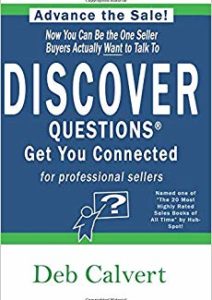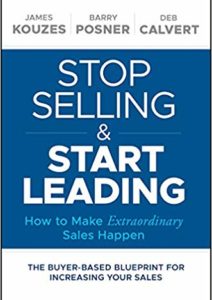What makes a good question? In sales, some would say a good question is one that is prepared in advance. Some would say a good question is one that craftily leads the buyer toward the close. Others still would say a good question is the one that forces the buyer to agree with the seller, even if on a small point.
These misunderstandings about questions push buyers away. That’s why none of these are good questions.
A good question is one that draws the buyer toward the seller. Good questions yield the type of information the seller was looking for and steer the conversation artfully to build rapport and trust.
Good questions are not scripted, robotic, crafty or manipulative. Instead, they are natural sounding and follow the logical course of the conversation. They are crafted to pinpoint, with precision, the exact sort of response a seller needs before proceeding.
Good questions are logically sequenced, too, starting broadly and then narrowing to become progressively more specific to the sales situation. As with any conversation, sellers are guided by their own curiosity and ask follow-up questions to learn more about key points offered by the buyer.
Good questions lead to good conversations. Good conversations build trust between buyers and sellers. Good questions go beyond making a good impression. They make a deep and lasting impression on the buyer, one that makes the seller stand out above all others.
The same skills will serve you well in other settings, too. Asking good questions when interviewing to fill a job will give you a much better chance of selecting the best-fit employee for the position. In fact, the best practices for asking questions apply in any setting where you need information and insights to proceed properly.
So why don’t more people ask good questions more often? It’s simply because we don’t pay near enough attention to our own purposes for asking questions. That’s why we end up on go-nowhere fishing expeditions, asking ill-crafted questions that bog down our conversations.
It’s easy, though, to build skills for asking improved questions that yield much better information. Entrepreneurs, selling professionals and customer service personnel who master the use of eight distinct purposes for asking questions create value in every conversation. Used wisely, questions are potent connectors.
Over the past 20 years, observing tens of thousands of sales calls, I determined that there are only eight purposes for asking questions. Knowing these purposes will give you new kinds of questions to ask and will improve the conversations you have with your buyers.
The eight purposes form the acronym DISCOVER. And while these are highly useful in the discovery phase of your sales process, all eight can be useful to open sales calls and to advance the sale at any stage. Some of these are particularly helpful in maintaining and strengthening buyer/seller relationships, too. When you ask better questions, you will find that people welcome and invite more of them.
The eight aims of asking questions are:
D ATA: to gather factual information that is objective and not based on opinion.
I SSUE: to understand what is or what could be in the way of a continued relationship with the buyer.
S OLUTION: to generate ideas and co-create insights with your buyer.
C ONSEQUENCE: to uncover and understand buyer pain points and risks of inaction.
O UTCOME: to identify hopes, dreams, plans, visions and goals about the future for the buyer.
V ALUE: to pinpoint top priorities and sort out what matters (and what doesn’t matter as much).
E XAMPLE: to compare and contrast alternatives and help buyers get a better sense of your solution.
R ATIONALE: to learn about decision criteria and what will influence a buyer’s decision.
Buyers respond enthusiastically to five of these questions. The three they are less excited about are Data, Consequence and Outcome Questions… the very types that sellers ask most often. In fact, few sellers ask Issue, Solution and Example Questions. That makes these three types refreshing and engaging for buyers.
The impact of asking better questions include:
- Buyers rate sellers who ask purposeful questions as more trustworthy.
- Buyers who are engaged are buyers who buy.
- Buyers favor sellers who differentiate themselves by asking quality questions. They choose to do business with the ones who use questions to build and solidify relationships.
To learn about building trust and advancing the sale using DISCOVER Questions®, get a copy of the book HubSpot named one of “The Top 20 Most Highly-Rated Sales Books of All Time.” DISCOVER Questions® Get You Connected includes stories from the field, research with buyers, and skills practice exercises to help you become “the one seller that buyers actually WANT to talk to.”
Pipeliner CRM empowers salespeople to precisely ask the right questions. Get your free trial of Pipeliner CRM now.












Comments